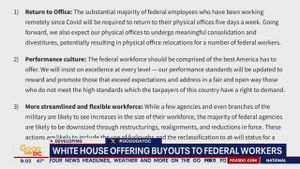Nova Scotia residents are facing uncertainty as U.S. President Donald Trump follows through on his campaign promise to impose significant tariffs on Canadian exports, particularly affecting the local economy.
On February 1, 2020, Trump enacted 25% tariffs, leaving Nova Scotia Premier Tim Houston to outline the provincial response. He described three main actions the province will take: limiting access to provincial procurement for American businesses, doubling tolls for commercial vehicles from the United States effective February 3, and removing all American alcohol products from the Nova Scotia Liquor Corporation (NSLC) shelves starting February 4.
Premier Houston expressed his dismay over the tariffs, stating, “It’s remarkable to find ourselves at odds with our best friend and neighbour over what he called President Trump’s unlawful tariffs.” He emphasized the need for Nova Scotia to seek new markets, develop local resources, and minimize inter-provincial trade barriers.
Yet, the move raises concerns, particularly from the NDP leader, Claudia Chender, who fearfully suggested the impact might be devastating for many industries. “We’ve got a lot of industries exposed... It could mean job losses. It’s certainly going to mean less productivity and less profit and I think for some businesses, it’s going to be a question of whether they can remain in the province,” Chender elaborated.
Economists like Sylvain Charlebois from Dalhousie University noted the precarious nature of the situation, pointing out, “If we are to retaliate, it takes 30 days before any tariffs on American imports go... many products we consume come from America.” He cautioned this could lead to higher grocery prices for Canadians, particularly within the agri-food sector, where around 60-70% of Atlantic Canadian exports head south across the border.
The NSLC, which relies heavily on American products, announced significant changes affecting their business model. Terah McKinnon, a communications advisor with the NSLC, stated, “At the moment, we are still working through the details... last fiscal year sales of U.S. products imported directly from the U.S. totaled approximately $18 million at the NSLC and made up 7 percent of all NSLC beverage alcohol listings.” With total beverage alcohol sales reaching $753 million, the change could deeply affect consumer choice and prices.
Chender continued her calls for the establishment of a provincial task force to address these tariffs. She stated, “Nova Scotians want to understand... What is the relief... to help folks avoid those worst-case scenarios.” The uncertainty is palpable as citizens await details on programs intended to mitigate potential losses.
While the tariffs provoke reactions from Nova Scotia's leaders and citizens alike, they underline the fragile nature of trade relations between Canada and the United States. With the penalties now enforced, the stakes for businesses and consumers across the province have undoubtedly risen, causing many to reflect on the potential ramifications of these newly imposed tariffs.



